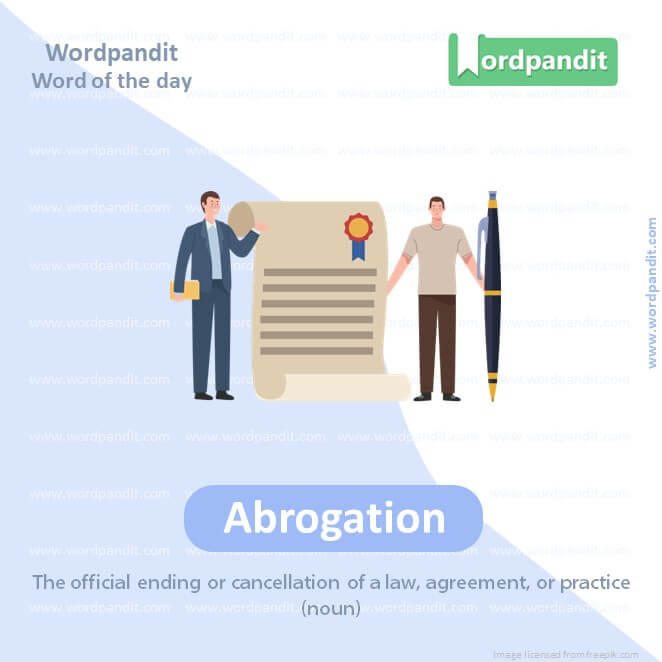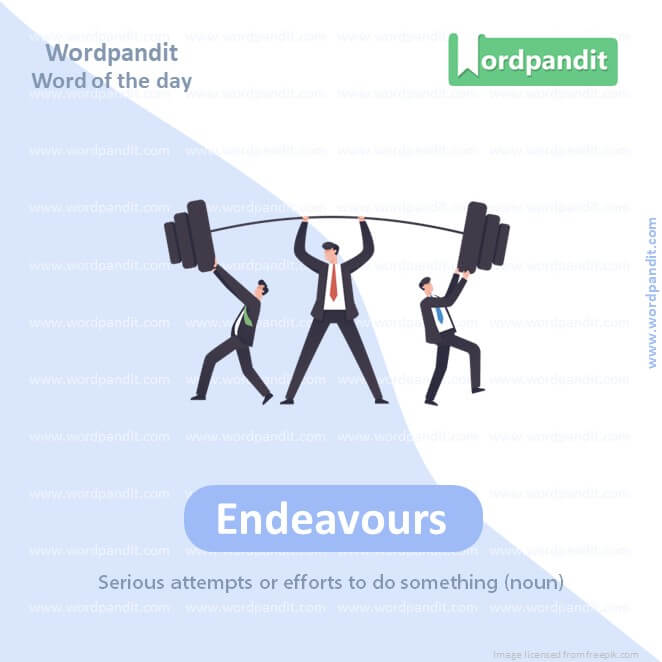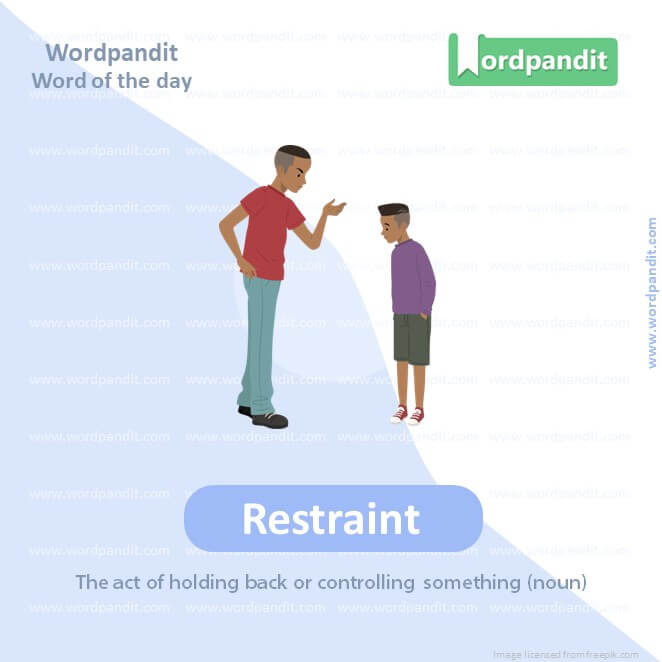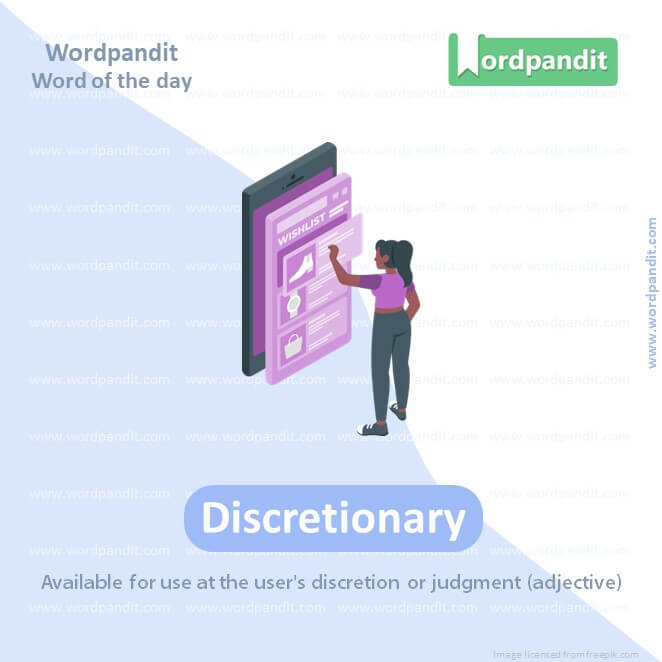Daily Vocabulary Words: List of Daily Used Words in Leading Indian Newspapers
Hi there. Welcome to this special section @ Wordpandit. Our endeavour here is straightforward: highlighting daily vocabulary words that you would come across in leading newspapers in the country. We have included the following newspapers in our selection:
• The Times of India
• The Economic Times
• Hindustan Times
• Mint
• Indian Express
We are putting in extensive work to develop your vocabulary. All you have to do is be regular with this section and check out this post daily. This is your repository of commonly used words; essentially, we are posting a list of daily used words. Hence, this has significant practical application as it teaches you words that are commonly used in leading publications mentioned above.
Visit the website daily to learn words from leading Indian newspapers.

WORD-1: Abrogation
CONTEXT: the abrogation of Article 370, cultural restoration is underway in Jammu and Kashmir at 123 identified places.
SOURCE: Hindustan times
EXPLANATORY PARAGRAPH: Imagine there’s a rule at home that you must go to bed early. One day, your parents say this rule is no longer needed. This act of ending the rule is called ‘abrogation’. It means officially ending or canceling something, like a rule or law.
MEANING: The official ending or cancellation of a law, agreement, or practice (noun).
PRONUNCIATION: ab-roe-GAY-shun
SYNONYMS: Repeal, Cancellation, Revocation, Annulment, Nullification.
USAGE EXAMPLES:
1. The abrogation of the treaty caused political controversy.
2. The new government announced the abrogation of the old laws.
3. The abrogation of these regulations will affect many people.
4. Advocates demanded the abrogation of the unjust law.
WORD-2: Inextricably
CONTEXT: His vision of a modern Viksit Bharat is inextricably intertwined with reconnecting our people to their parampara.
SOURCE: Hindustan times
EXPLANATORY PARAGRAPH: Think of when you tie two strings so tightly together that you can’t separate them. That’s being ‘inextricably’ linked. It means things are so closely connected or involved with each other that they can’t be separated.
MEANING: In a way that is impossible to disentangle or separate (adverb).
PRONUNCIATION: in-eks-TRICK-uh-blee
SYNONYMS: Indivisibly, Unseparably, Intertwined, Entangled, Intimately.
USAGE EXAMPLES:
1. Their lives were inextricably linked.
2. The issue is inextricably connected to environmental concerns.
3. History and culture are often inextricably intertwined.
4. These problems are inextricably part of the larger crisis.
WORD-3: Perpetuate
CONTEXT: The guidelines on communication relate to the usage of ill-health terminologies for persons with disabilities (PwD), dehumanising or using PwDs to depict incapacity or perpetuate stereotypes.
SOURCE: Indian express
EXPLANATORY PARAGRAPH: Imagine if you keep telling the same story over and over so that everyone remembers it. That’s ‘perpetuating’ the story. It means making something continue forever or for a very long time.
MEANING: To make something continue indefinitely (verb).
PRONUNCIATION: per-PET-chew-ate
SYNONYMS: Sustain, Maintain, Continue, Preserve, Prolong.
USAGE EXAMPLES:
1. The film helped to perpetuate certain myths about history.
2. Their actions perpetuate the cycle of violence.
3. She criticized the media for perpetuating stereotypes.
4. Efforts are needed to perpetuate these endangered traditions.

WORD-4: Endeavours
CONTEXT: The third head provides for the development of training modules on disability for party workers and endeavours to include PwDs at all levels of a political party.
SOURCE: Indian express
EXPLANATORY PARAGRAPH: Think about when you try really hard to do something, like building a big tower of blocks. That’s called making an ‘endeavour’. It means a serious attempt or effort to do something.
MEANING: Serious attempts or efforts to do something (noun).
PRONUNCIATION: en-DEHV-ers
SYNONYMS: Efforts, Attempts, Undertakings, Ventures, Pursuits.
USAGE EXAMPLES:
1. She is known for her creative endeavours.
2. The team’s endeavours resulted in success.
3. All our endeavours turned out to be fruitful.
4. He supported the scientific endeavours of his students.

WORD-5: Restraint
CONTEXT: both nations have not escalated the stand-off to a shooting war. Will this restraint be maintained by Beijing in 2024?
SOURCE: Indian express
EXPLANATORY PARAGRAPH: When you really want to eat all the cookies but take only one, you’re showing ‘restraint’. It means controlling your actions or feelings and not doing everything you want to.
MEANING: The act of holding back or controlling something (noun).
PRONUNCIATION: ree-STRAINT
SYNONYMS: Control, Moderation, Constraint, Discipline, Containment.
USAGE EXAMPLES:
1. He showed great restraint in not responding to the provocation.
2. Budget cuts forced the company to exercise financial restraint.
3. The police used restraint in handling the situation.
4. Restraint is important in professional settings.
WORD-6: Reformative
CONTEXT: these guidelines are a reformative step in that direction, an effective strategy is still required.
SOURCE: Indian express
EXPLANATORY PARAGRAPH: Imagine a friend who always helps you become a better person. This is like being ‘reformative’. It means something that helps to make changes for improvement, especially in behavior or structure.
MEANING: Serving to improve or reform (adjective).
PRONUNCIATION: re-FOR-muh-tiv
SYNONYMS: Ameliorative, Corrective, Improving, Remedial, Rehabilitative.
USAGE EXAMPLES:
1. The reformative programs in the prison aim to help inmates.
2. She believed in the reformative power of education.
3. The new policies have a reformative effect on the system.
4. They are working on reformative measures for environmental protection.

WORD-7: Extrapolated
CONTEXT: The last two years are too recent to be consigned to “history” but some of the most significant punctuations of 2022 and 2023 in the strategic domain could be extrapolated to the composite Indian national security challenge in the year ahead.
SOURCE: Indian express
EXPLANATORY PARAGRAPH: Imagine guessing how tall you’ll be when you grow up by looking at how much you’ve grown before. That’s ‘extrapolating’. It means extending what you know to guess something about what you don’t know.
MEANING: To estimate or conclude something by extending or projecting known information (verb).
PRONUNCIATION: ek-STRAP-oh-lay-ted
SYNONYMS: Infer, Deduce, Predict, Project, Conjecture.
USAGE EXAMPLES:
1. The scientist extrapolated the data to predict future trends.
2. Results from the experiment were extrapolated to the larger population.
3. The growth rate was extrapolated over the next five years.
4. He extrapolated his findings to suggest a new theory.

WORD-8: Discretionary
CONTEXT: the political party framework, are still incorporated in discretionary terms, for example, using “may.” A uniform mandate under all three heads is needed.
SOURCE: Indian express
EXPLANATORY PARAGRAPH: Imagine your mom says you can have a snack and you can choose what it is. You have the ‘discretionary’ power to decide. It means having the freedom to decide what should be done in a particular situation.
MEANING: Available for use at the user’s discretion or judgment (adjective).
PRONUNCIATION: dis-KRE-shun-air-ee
SYNONYMS: Optional, Voluntary, Elective, Personal, Arbitrary.
USAGE EXAMPLES:
1. Employees have a discretionary bonus at the end of the year.
2. The fund manager has discretionary authority over investments.
3. Discretionary spending in the budget was reduced.
4. The committee has discretionary powers to allocate the funds.
WORD-9: Reunification
CONTEXT: The wisdom gained after the German reunification was that the spirit of the 1976 Helsinki Agreement, which made borders sacrosanct in Europe, would not be violated.
SOURCE: Indian express
EXPLANATORY PARAGRAPH: Imagine two best friends who haven’t seen each other in a long time finally getting back together. This is like ‘reunification’. It means the act of coming back together after being separated.
MEANING: The process of being united or made into a whole again (noun).
PRONUNCIATION: ree-yoo-ni-fi-KAY-shun
SYNONYMS: Reunion, Reintegration, Reconciliation, Restoration, Consolidation.
USAGE EXAMPLES:
1. The reunification of the two countries was a historic event.
2. Families celebrated their reunification after years apart.
3. The conference focused on the challenges of reunification.
4. Efforts are ongoing for the reunification of the divided community.
WORD-10: Reticence
CONTEXT.: This has been a mixed bag since the politics surrounding the relentless Israeli attacks on Palestine have led to divergent views among US allies and there is visible reticence among the latter to uncritically support Washington in this matter.
SOURCE: Indian express
EXPLANATORY PARAGRAPH: Think of a friend who doesn’t talk much or share their feelings easily. This is called ‘reticence’. It means not speaking a lot or not showing your feelings, usually because you are shy or want to keep things private.
MEANING: The quality of being reserved or reluctant to speak about one’s thoughts or feelings (noun).
PRONUNCIATION: RET-ih-sens
SYNONYMS: Reserve, Silence, Taciturnity, Discretion, Quietness.
USAGE EXAMPLES:
1. His natural reticence made him a man of few words.
2. Despite her reticence, she was a great listener.
3. The artist’s reticence about her private life intrigued the public.
4. There was a noticeable reticence among the team members to share ideas.
Vocabulary Words with Meaning
Penetrating the rich tapestry of language, the essence of ‘vocabulary words with meaning’ is a crucial aspect. It’s these seeds of knowledge that bud into fluent conversations and comprehensive understanding. The knack of grasping ‘vocabulary words with meaning’ is pivotal in language learning, but it demands a nuanced approach and strategy.
Learning ‘vocabulary words with meaning’ isn’t about mechanically memorizing heaps of words. It’s about building connections and creating a profound understanding of these words. A promising approach to assimilate ‘vocabulary words with meaning’ involves utilizing a wide range of resources including literature, films, music, and digital content. This immersion provides a broad context and diverse settings for these words, simplifying their comprehension and use.
When you’re focusing on ‘vocabulary words with meaning’, remember to incorporate memory-enhancing techniques into your learning regimen. Tools like flashcards or recall-based applications can aid significantly in long-term retention of these words. Additionally, mnemonic strategies, associating words with distinctive images or stories enhance memory recall and understanding.
The journey of mastering ‘vocabulary words with meaning’ also benefits greatly from practice and application. Engage in conversations using the language, express your thoughts in writing, and try to incorporate newly learned words into your routine. This not only enhances your familiarity with the words but also aids in an intimate understanding of their connotations and denotations.
To sum up, learning ‘vocabulary words with meaning’ is akin to assembling a jigsaw puzzle: it requires patience, strategy, and persistence. But the picture that finally emerges is a beautiful tapestry of language – vivid, articulate, and expressive. So, set your sails toward the voyage of ‘vocabulary words with meaning’, and discover the joy of speaking and understanding a language with finesse.













